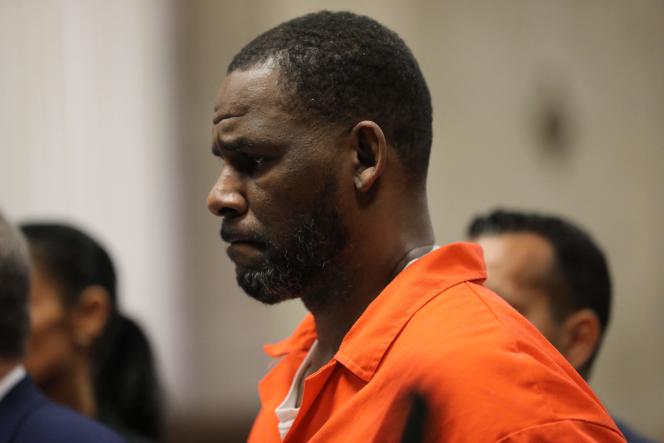American singer R. Kelly was sentenced on Wednesday June 29 to 30 years in prison for years of running a “system” of sexual exploitation of young people, including minors, over a period from 1994 to 2018. The fallen star du R’n’B had been found guilty in September 2021 of all the charges against him: extortion, sexual exploitation of a minor, kidnapping, trafficking, corruption and forced labor.
In their last indictment, the prosecutors of the federal court of Brooklyn had claimed at least twenty-five years of criminal imprisonment because of the “danger” Robert Kelly, of his real name, for his victims and for the public opinion. The U.S. prosecutor’s office believed him to be “an impudent, manipulative, controlling and coercive individual, showing no sign of remorse or respect for the law.”
Major step of the movement
The trial exposed R. Kelly’s “system” to lure very young women and sexually assault them, with the complicity of those around him, as in some sort of mafia enterprise, according to the prosecution. Many victims had told of their meeting with their idol during concerts after which they were slipped a small piece of paper with the singer’s contact details.
The singer had been portrayed by the prosecution as “criminal, predatory”. Nine women and two men had accused him of having sexually abused them, describing rape, forced drug taking, situations of imprisonment or even child pornography. The 55-year-old has always denied the facts.
Nine months ago, the trial of the singer known worldwide for his hit I Believe I Can Fly was analyzed as an indicator of sexual crimes in the African-American community. It was considered a major step in the movement
For Kenyette Barnes, originator of the hashtag

















